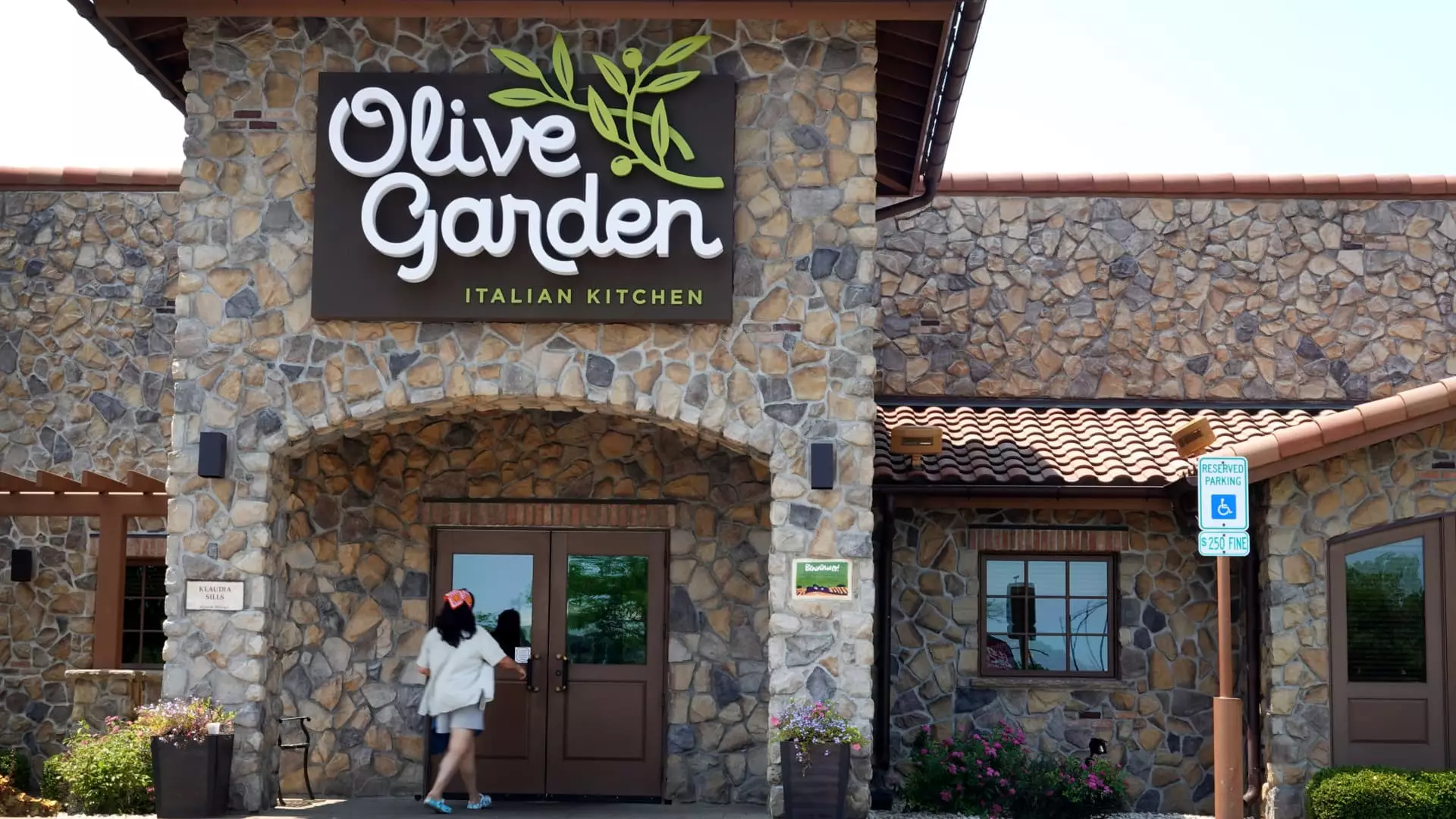Darden Restaurants, a major player in the American dining sector, recently disclosed its quarterly earnings, revealing results that fell short of Wall Street’s expectations. Though the company’s various dining establishments, notably Olive Garden and its upscale offerings, have faced headwinds, the leadership remains optimistic about its long-term strategy. This article dissects Darden’s latest quarterly performance while evaluating potential underlying reasons and implications for the company’s future.
In the fiscal quarter that concluded on August 25, Darden reported adjusted earnings per share of $1.75—lower than the anticipated $1.83. Revenue figures followed suit, coming in at $2.76 billion, which fell short of the projected $2.8 billion. While the net income showed a solid year-over-year increase from $194.5 million to $207.2 million, the perceptions of growth seem dimmer against the disappointing same-store sales metrics across several chains within Darden’s portfolio.
Darden’s flagship brand, Olive Garden, suffered a 2.9% decline in same-store sales, reflecting shifting consumer preferences and a possible waning of brand appeal among diners. Additionally, the company’s fine-dining establishments, including The Capital Grille and Eddie V’s, faced a staggering 6% decline in same-store sales. This trend is concerning as fine dining relies heavily on discretionary spending, which appears to be stalling amidst broader economic uncertainties.
The downturn in traffic for Darden’s restaurants can be attributed to multiple factors, including a surge in summer travel and heightened vigilance among consumers regarding their dining choices. CFO Raj Vennam highlighted a significant drop in foot traffic during July, which provides insight into broader market behavior. As traditional dining experiences are challenged, many consumers seem to be gravitating towards convenience and cost-effectiveness, impacting sit-down restaurant chains negatively.
Despite these challenges, Darden’s leadership remains resolute. CEO Rick Cardenas expressed faith in the organization’s capabilities to navigate through this rocky patch. The company is gearing up to reintroduce its popular Never Ending Pasta Bowl, a staple strategy aimed at revitalizing patron interest. This initiative exemplifies Darden’s adaptive tactics, intending to retain its existing customer base while enticing new diners back to Olive Garden.
Remarkably, despite the adverse quarterly results, Darden reiterated its fiscal outlook for 2025, projecting earnings per share between $9.40 and $9.60, with net sales estimates steadily hovering between $11.8 billion and $11.9 billion. This commitment to growth reflects a careful balancing act—ensuring short-term adaptability does not compromise long-term objectives. Darden’s focus on continuous improvement and strategic innovation serves as a beacon of resilience in a fluctuating market landscape.
While Darden Restaurants has had to confront disappointing earnings and a challenging environment, its proactive measures and strong leadership present promises for improved performance in the future. By closely monitoring consumer trends and adjusting strategies accordingly, Darden may navigate its way back to steady growth, reinforcing its standing as a cornerstone of the dining industry amidst evolving market dynamics.

